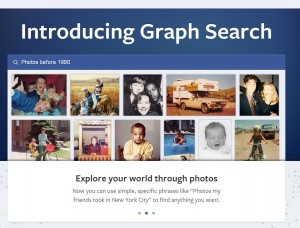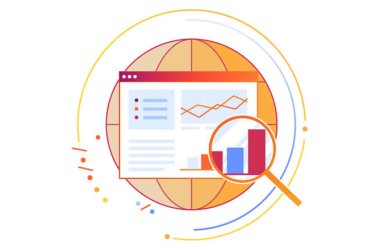 Mark Zuckerberg unveiled a plan this week to make all of the Likes, check-ins, and photo tags on Facebook actually mean something with the launch of Graph Search. The service is in early beta, and is not yet widely available, but the concept has some valuable implications for businesses on Facebook.
Mark Zuckerberg unveiled a plan this week to make all of the Likes, check-ins, and photo tags on Facebook actually mean something with the launch of Graph Search. The service is in early beta, and is not yet widely available, but the concept has some valuable implications for businesses on Facebook.
Here are three ways that small and medium businesses can benefit from Facebook Graph Search:
1. Engagement
Facebook is already the online destination where users spend the most time. One report from May of 2012 suggests that users spend nearly 8 hours per month on average perusing Facebook – more than double the amount of time spent on the next closest rival. Facebook also has nearly a billion registered users, and boasts around 150 million unique visitors per month.
So, what do all of these stats mean to you, and what does it all have to do with Graph Search? First, the data underscores the value of Facebook as a platform for connecting with and engaging customers. It’s the place to be online, and the people who use it spend a lot of time there. Graph Search is going to give Facebook users even more reason to stay enmeshed in the social network. Queries that people might normally switch over to Google or Bing for, they’ll now conduct from within Facebook in order to get responses that are more relevant to them personally.
2. Research
Facebook already represents a massive global repository of valuable marketing data. Companies have spent the past few years trying to grasp how to leverage Facebook Pages, Likes, and other nuances of the social network in order to connect with customers and gain some tactical advantage over competitors.
Graph Search gives businesses a powerful new tool for mining market research data from Facebook. A search of users who Like the company Facebook Page and live in a given area will be instrumental in allocating resources where they can have the most impact. With a little creativity in the queries, a business can learn all sorts of useful correlations that paint a more complete picture of who their customers are, and what they like.
3. Marketing
Facebook Ads already enable targeting on a fairly granular level based on a wide variety of attributes. You can distribute ads by location, age, gender, interests, and more.
Just as cyber criminals can use the power of Facebook Graph Search to pinpoint potential phishing attack victims with greater precision, legitimate businesses can also target marketing efforts to a more exact audience. Granted, Graph Search has some privacy controls built in, so the results for a business doing market research would be based primarily on information that users have shared with the general public–but many users are unaware of the security controls, are too lazy to use them, or simply don’t care, so there’s plenty of valuable information to be found there.





